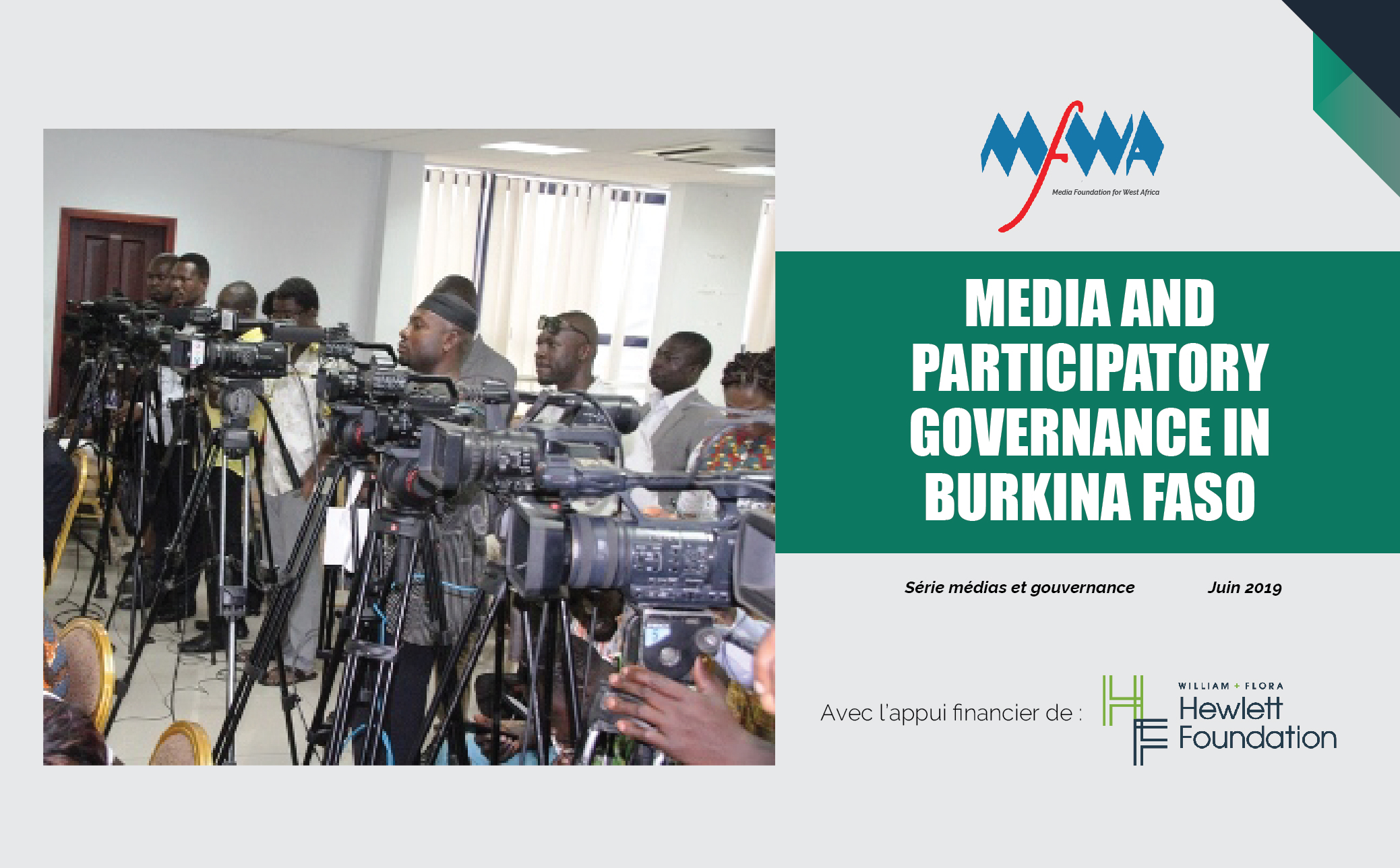Since the return of democracy in Burkina Faso in the 1990s’, both the media and citizens have together denounced social injustice and held demonstrations against corruption, financial embezzlement, assassinations of dissidents and other motives. Media organisations positioned themselves to play three major roles in promoting participatory governance:
- Providing platforms for public discourse – giving the opportunity to all citizens and stakeholders in the country to express themselves;
- Gathering / Mobilizing citizens for collective actions – contributing to citizens’ engagements and participatory governance;
- Watch-dog – observing and monitoring the various state powers (executive, judiciary and legislative) and contributing to ensuring transparency and accountability of public officials.
Drawing on available data and literature, this policy brief assesses the contribution of the media in promoting participatory governance in Burkina Faso. The paper begins with an introduction on the media landscape in Burkina Faso and explains how they have today become key platforms for citizen-authorities’ engagements – where citizens can express their views and also receive information on the implementation and the operationalization of public policies. It also highlights key challenges hindering the media from effectively contributing to participatory, transparent and accountability governance in Burkina Faso and finally makes some recommendations improving the situation.
To read the full document, click here.





